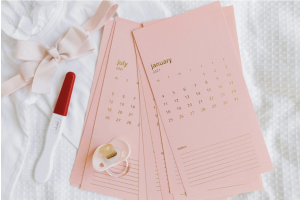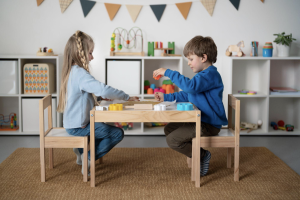Things You Shouldn't Buy for Your Baby

As a parent, it’s hard to avoid the temptation of buying all the latest gear for our babies — especially if they’re your first. You want to make sure your baby gets everything they need, as well as some of the toys they’ll likely want. However, despite the extraordinary amount of marketing promoting every baby supply as a must, there are certain purchases that are completely unnecessary.
In this article, we’ll discuss seven things you shouldn’t buy for your baby — or, at least, items that you shouldn’t put on your priority list.
1. Baby Shoes
We all know baby shoes are adorable. Putting tiny feet into tiny shoes can make any parent gush. However, baby shoes are simply accessories that give us joy without any added benefit for your child.
Babies can actually benefit from going barefoot, which allows for better balance and coordination as they’re learning how to walk. Going shoeless can be more comfortable for your child, too.
If you want to purchase shoes for protection when you take your child outdoors or in particularly cold areas, one pair is certainly enough. However, avoiding this purchase can save you a lot in the long run, since baby feet grow so quickly that you’ll need to buy a new pair every couple of months.
2. Baby Towels
Baby towels are often costly purchases that aren’t entirely necessary. While towels are essential for showers and the occasional cleanup, the fact is that any soft towel will do. In fact, adult towels can be more absorbent than the average baby towel, and they’ll last you longer as your child grows. You can still designate a set of towels for your child if you don’t want to risk spreading germs to your sensitive baby.
3. Crib Bedding Sets
Crib bedding sets are a trend that no parent should ever follow. While blankets, pillows, and comforters may be essential for adults, bedding can increase the risk of suffocation for babies. Putting a onesie or a wearable blanket on your baby instead can keep them warm, comfortable, and — most importantly — safe.
4. Expensive Baby Clothes
Your baby needs clothes — that’s a given. However, there’s no need to purchase whole outfits that they’ll grow out of in a short period of time. Rather than buying costly baby clothes from retailers like Target, The Children’s Place, or Kohl’s — all of which follow unsustainable fast fashion trends that will make your clothes difficult to resell — consider shopping at thrift stores or consignment stores. You’ll find quality, timeless clothing for a fraction of the price. Also consider buying apparel that will grow with your child, rather than just stocking up on 0-3mo sizes.
To successfully thrift baby clothes, make sure to flip clothes inside out to check for wear.
5. Special Detergent
Babies have sensitive skin, and buying an unscented, clear detergent can certainly help them avoid irritation. However, detergent that’s specially formulated for babies can be expensive and take up extra space. An easy way to save and declutter your home is by sticking to one detergent for your family: one that’s free and clear, but perfect for getting stains out of anyone’s clothes.
6. Changing Tables
Changing tables will take up a lot of space in your home, especially if you don’t have a separate room for your nursery. While it’s helpful to have a designated space to change diapers, changing tables are also hard to repurpose once your child is fully potty trained.
Instead of purchasing a changing table, consider using a low, flat-topped dresser for all your changing needs. Purchasing a changing mat (ideally with raised sides to prevent falling) is much more affordable and a better use of space. If you need to buy a new dresser for your changing needs, it’ll still be a more valuable investment that’s easier to find at thrift stores and easier to resell.
7. Bassinets
Bassinets are portable products that allow parents to keep babies comfortable and right by their side. However, they’re usually only meant for babies under five months old, which means your purchase will quickly be unneeded.
A better alternative to a bassinet is a Pack ‘n Play (or playard), which can last up to five times longer. Plus, unlike bassinets, which are only meant for sleeping, playards can be used for sleeping and playtime.
Only Buy What You Need
Before you make any purchase for your child, ask yourself these three magic questions:
- Does my baby really need this?
- Is it safe?
- Is there a more affordable alternative that works just as well?
These questions can help you avoid unnecessary purchases, as well as products that are marked up simply because they’re designated for babies. Even when items are necessary, you can consider thrifting to get quality products at a far lower price.






